Bubblin’ Up: Maksim
The rising Russian artist talks New York, Russia, and his Resolute residency.
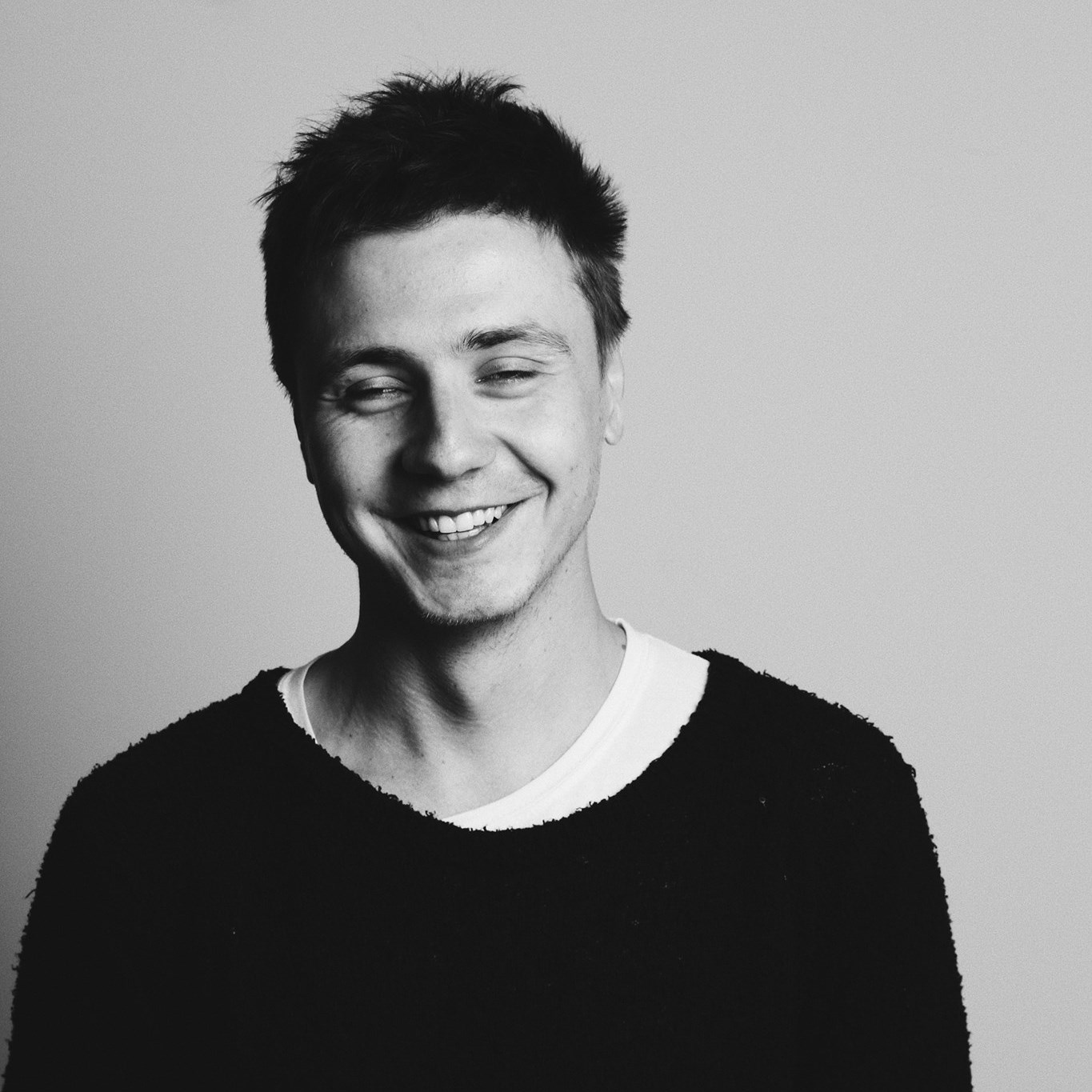
Bubblin’ Up: Maksim
The rising Russian artist talks New York, Russia, and his Resolute residency.
Maksim (real name Maxim) is one of five resident DJs of Resolute and has been so since 2013. His sets are groovy, infectious, and energetic, not to mention intelligently composed and playful—reflective, in this sense, of the man behind them. You need not look too hard to understand why he was chosen as a central figure in one of United States’ most established underground music and event brands.
The 31-year-old DJ-producer was born and raised in Severodvinsk, northwestern Russia. Music found its way into his life during his adolescent years during which he worked as a club’s lighting guy, began collecting records, and, soon, DJing at local venues. He continued investing time in the craft through university, but it wasn’t until he moved to Moscow—” another woman story,” he jokes—that he became enchanted with more minimal sounds, in part down to Arma17. The Russian capital remains his favorite place to perform.
Brooklyn, New York, has been home since 2011. It was a rather spontaneous relocation: visa in hand and having fallen out with his girlfriend at the time, he arrived at the airport looking for a fresh start. He spent several years Couchsurfing, doing various odd-jobs to provide for himself, including DJing, which became his primary focus. In 2013, after no more than two years on that side of the Atlantic, he impressed Connie Yin, another Resolute resident, who connected him with founder Nektarios Ioannidis, who proceeded to offer him a residency. And the rest is history.
A spotlight on his work was all Maksim needed. Outside of his obligations for Resolute, for which he performs around twice a month, he also DJs across Europe and the Americas as news of his skills continues to spread. What’s more impressive is that he’s achieved all this with only a modest discography; barring a string of edits and unofficial remixes, it’s only now that he’s shared his first material—a mysterious three-track EP on Aline Brooklyn. “Producing doesn’t come easily to me, I’m quite distractible,” he says. “A bit of a goldfish in a bowl if you will. The release sold out in only three days.
With more music on the way and a growing touring schedule, we thought it about time to connect with Maksim to learn more.
In support of the interview, Maksim recorded an XLR8R podcast which can be streamed here and downloaded via the WeTransfer button below—or here for EU readers due to temporary GDPR restrictions.
Do you remember the first time you felt a connection to something musical?
Growing up we had a reel-to-reel player. The Animals’ “House of the Rising Sun” (1964) is my first strong memory of music. I was really afraid of that song, but I also loved it. I was quite the little masochist, I guess. I never forgot it.
Were you always drawn to weirder more left-field music like this?
Yes. It keeps me in a constant state of juvenile delinquency!
What were some of your key inspirations when you started exploring music yourself?
It wasn’t a stellar start: trance and breakbeat. But that’s the unfortunate consequence of being cool in the exact wrong year.
How did your tastes evolve from trance and breakbeat—and what were the records that inspired it?
Classic Rock was a big part of my life, and I began to gravitate towards tracks that fused its sounds with electronic music like Moguai “Tonight,” and The Chrystal Method “Busy Child.”
Did you ever receive musical training growing up?
No, but everyone in my family sings and plays musical instruments, except me. Practicing piano, studying music theory, being stuck in the room. My childhood nightmares have become my adult dreams!
Where did you grow up?
Northwestern Russia on the shore of the White Sea. Severdovinsk was a town originally built for the production of nuclear submarines; we had Geiger counters on most of our buildings, and we planted Poplar trees to absorb radiation—so I might be a touch “off.” We had nine months of winter and three months of something like spring, so three times a week we “took some sun” by standing under UV lamp. But my favorite memory is the sound of snow crunching under my father’s feet while he pulled me along in a sled.

How was it there for a teenager growing up?
Like one big afterparty: lots of snow and very dark! 😉
And when did DJing enter the picture?
I got my first gig when I was 17, it was every boy’s dream. My sister got me a job in the club and I was skipping high school and art school just to hang out at said club. A year later, I moved to Kursk for university and got a residency at the local club by myself—so, progress?
How did you learn the ropes of DJing—and where were you getting your records from?
After trying to unsuccessfully mix my cassette player with father’s Reel to Reel (basically impossible!), I got my hands on a Numark CDN-18. I discovered pitch, and my life changed! Records? The only ones I had at that time were my grandparents’ Soviet pop records.
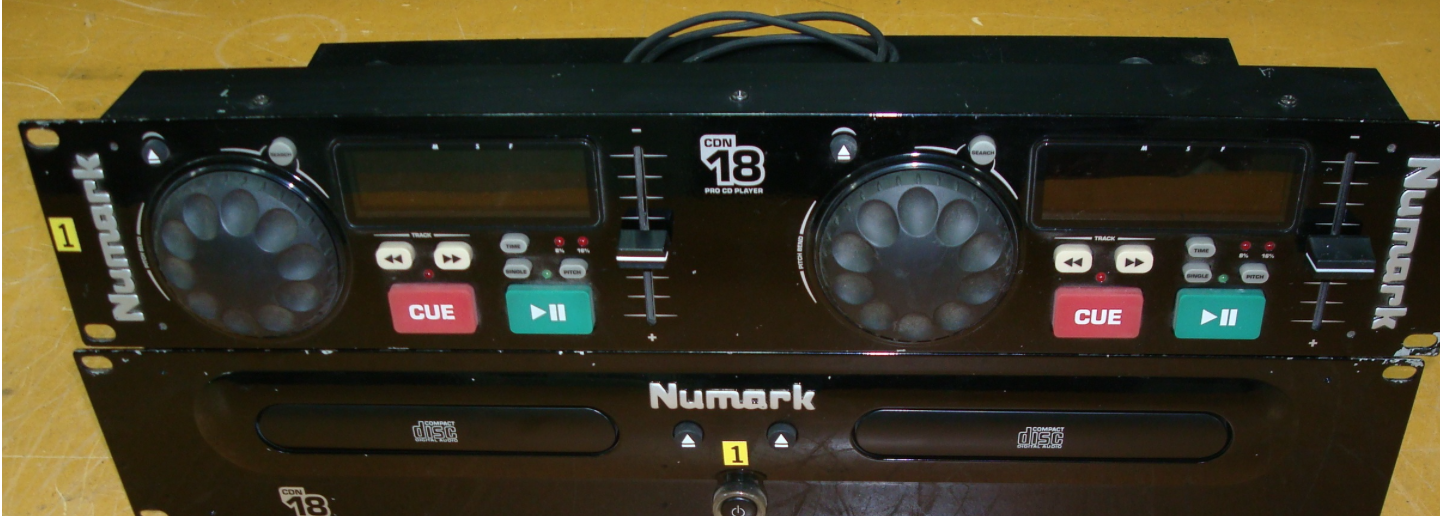
What sort of stuff were you playing?
House, deep, progressive, disco—whatever I could find. Lack of access limited my choices!
How was the Russian scene at this time?
I was a bit of a small town boy, so my exposure to the real scene was limited until I moved to Moscow around 2007. It’s always had variety and parties that are on point. You can find anything you like, from live electronic music to techno raves with thousands of people. From EDM to underground, but everything is done with quality. Slowdance, System108, Arma17, to name a few. From then ‘til now it has remained my favorite.
What is it that makes is so good, do you think—compared to places like Berlin, for example?
I can’t speak to Berlin, I haven’t spent enough time there yet. But what makes Moscow so good is that every party is unique, nothing repeats. Production value is always high.
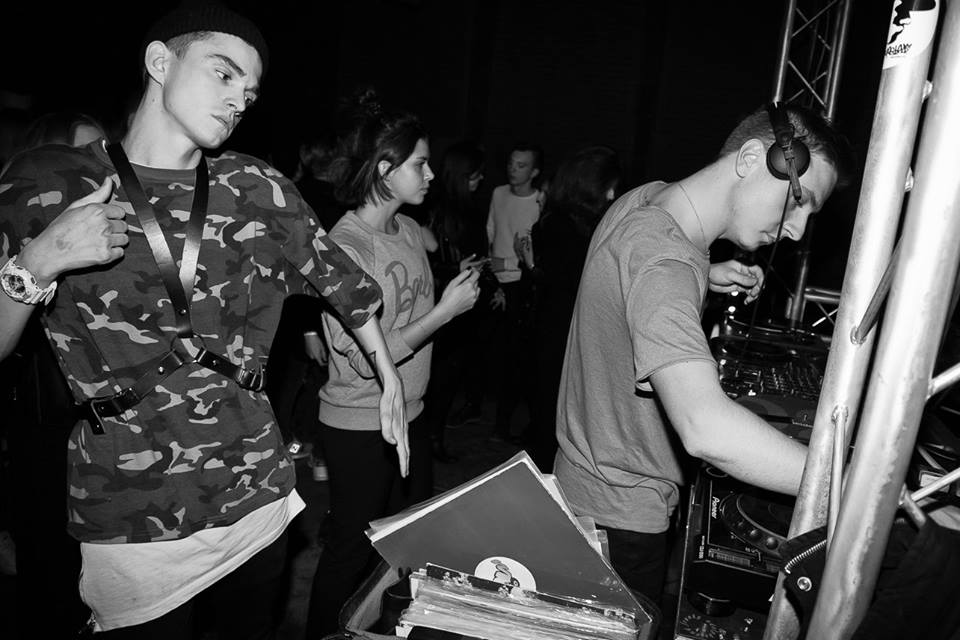
I read in the Meoko interview that you’re arrival in the states was an accident and stemmed from a fight with your girlfriend and an after party. Can you elaborate on this and how you ended up living in the US?
That’s really the whole story. We had a big fight, so I went to the airport straight from the party and landed in NYC. She followed me, total disaster; I ran out of money and had to stay. And after that drama ended I fell into the arms of NYC nightlife.
Why did you choose NYC?
John DeVore said it best: “Because New York is a penal colony. Part Troy, part mall. The rivers and oceans are natural moats keeping the maniacs in, and the rest of the country relatively safe.” Feels like home.
How was it making your way as a DJ in the city?
The usual—pretty hard in the beginning. I was couch crashing, broke, and my first gigs were in the basement of a bar where sometimes I just ended up with free drinks. But….then changes came, brilliance can’t be ignored 🙂 No, just little by little I went from one party to another and finally ended up where I was meant to be: Resolute.
Was DJing always the plan for you in NYC?
I started to play when I was 17, and all my decisions from then on were based on being a DJ. I never really changed my mind.
Did you or do you ever struggle with fear of it not working out?
I’d prefer to fail at this, then succeed in the office.
Is DJing your main occupation now?
Yes.
When did things really begin to pick up?
About three or four years ago. I started to treat it as a career, not as a constant party. This was on the advice of my friend Andrey Pushkarev. This shift changed everything
Have you just learned by trial and error?
Or trial by fire!
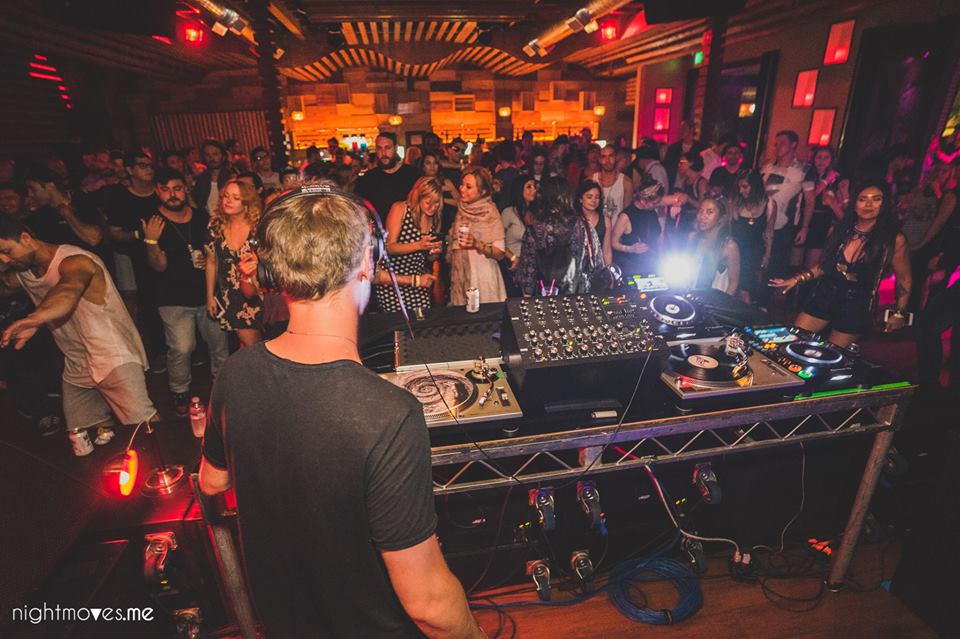
How do you organize your music for a gig?
I like to play long sets, so I carry a ton of music with me. It’s organized in folders the same way you organize your record bag, from zero to hero. There is always a folder called “weird,” for those “special” moments, too.
Do you pre-prepare your sets in your mind or are they guided by instinct?
I think instinct works better because you don’t always know in advance the distinct nature of the venue or crowd. Context matters.
And how did your connection with Resolute come about?
Around 2013, after seeing me play several times, Connie, who’s the resident for Resolute, recommended me. I opened for Heartthrob and right after got an offer to join the team.
What’s your status with the Resolute nowadays? How often do you play?
I’m the golden boy, numero uno…No, actually, I’m a part of a talented team. The man behind it all, Nektarios, pulls one of us from the roster to play every couple of weeks.
I assume it must be tremendous for your development?
Yes, it has exposed me to some great music and wonderful artists.
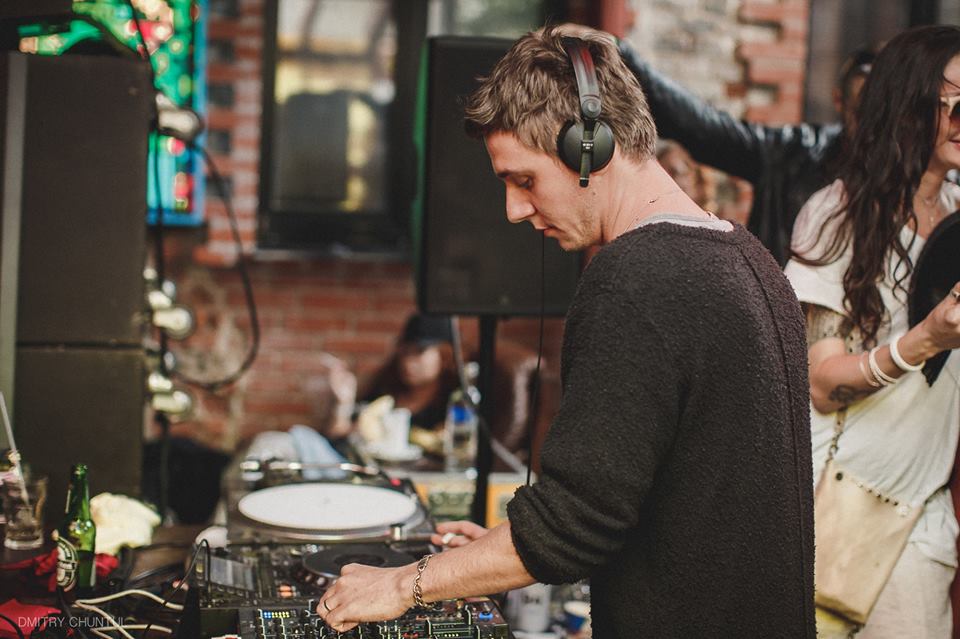
You’ve built your career mostly on your reputation as a DJ rather than production—was this a conscious decision from the start?
Yes. When I started as a DJ, I didn’t think about production seriously, and I’m sure it’s for the best.
There’s a lot of pressure in the scene to release records to get more gigs—have you ever felt this?
Yes, there is pressure. Forcing creativity doesn’t work for me, so I let it come when it comes, but I’m quasi-disciplined and endeavor to create each day.
How much of a role has production played in your life?
Until recently, not a huge role, but production actually feels like a natural fit. I always have a strong opinion on everything, music included. Now that I’ve managed to curb my desire to never sit still or to endlessly improve a track, producing is satisfying.
What is your current studio setup consist of?
My current set up is really no set up. I have a desk—I built it out of reclaimed wood from a junk store—a laptop, a borrowed sound-card and mixer, headphones, and a used midi keyboard with one broken key. Until recently, I didn’t even have a chair to sit on. But you can’t keep a genius down!
Do you think that these constraints help to keep your ideas strong, rather than, for example, spending hours programming a synth?
Yes, you can get lost with too many options. Instead of working, I’d wander around idly playing with everything, with too many toys.
Aline 002, which was essentially your debut record as Maksim, really caused a stir online and in the house scene—did you think it would get such a great reception?
I’d hoped, I’d been excited when I finished it, I’d felt confident, but one can always be delusional. I’m glad it worked out. Insanity 0 – Maksim 1.
How many hours per day are you currently spending in the studio?
I live in it, so 24/7 with little breaks to go to grocery shopping.
Do you see yourself staying in New York?
Yes. While it’s got some “troubles,” like garbage everywhere and money evaporating from your bank account, it’s become my home. I love it—the energy and the culture.
How have you seen the scene progress there over the years and where do you think it’s headed?
When I got here there was a small but great underground scene. Now it’s glorious…parties are everywhere, expanding, changing, and growing. And I think it’s going to continue in this manner.
How often are you returning home to play?
About twice a year, and I always look forward to it.
You’ve recorded a mix for us to accompany the feature. Where and when was this mix recorded?
In the same “studio” space we spoke above, about two months ago.
Was there a particular vision you had in mind when recording it?
I took my cue from books. And structure it like a story: prologue, plot, and culmination…
What else do you have coming up this year?
Very soon I’m going to Honduras and Guatemala; it will be my first time there. Then, I’m heading back to Moscow for SlowDance’s 10-year anniversary at Gazgolder, Ekaterinburg, and St Petersburg. In two months, you can expect a record on Minim with a very interesting background story and of course more Resolute.
Support Independent Media
Music, in-depth features, artist content (sample packs, project files, mix downloads), news, and art, for only $3.99/month.

